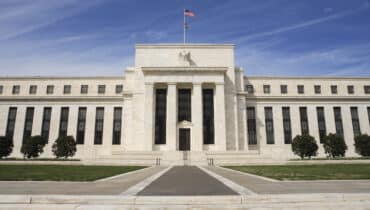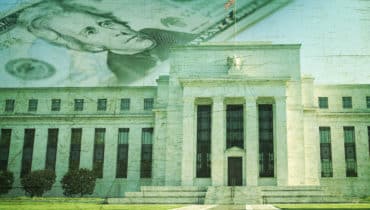The corona virus leaves traces in financial market policy. The US Federal Reserve cut interest rates surprisingly early on Tuesday. Erste AM chief economist Gerhard Winzer explains this measure in our interview.


The corona virus leaves traces in financial market policy. The US Federal Reserve cut interest rates surprisingly early on Tuesday. Erste AM chief economist Gerhard Winzer explains this measure in our interview.
What has the financial crisis shown us and what lessons have policy makers learned about “too big to fail”? The Deutsche Bank Commerzbank merger offers a lot of conversation points.

The majority of economic indicators point to a slowdown in global real economic growth.
How will this dichotomy between the market and the economic environment be resolved and will there be a stabilization?

Risky asset classes such as equities have recorded price increases at the beginning of the year. The core question for the investor is: Is this recovery after the sharp decline in Q4 sustainable or not?

The performance of most asset classes in the year to date has been mixed, to put it euphemistically. Is there a common underlying factor? Can we expect to see a better second half of the year?
Let’s start with a trip down memory lane: Do you remember the scenery 30 years ago – on the financial markets, and in our personal lives? The 1980s – many of the older generation are still thinking back to the “good old times”. There were no smartphones and no data kraken. Instead, we had shoulder […]
The heightened uncertainty over whether Italy will repay its debts and whether it will remain a member of the eurozone has led to a sell-off in securities. Our chief economist Gerhard Winzer gives an overview.
Positive opportunities still outnumber the negative ones on the capital markets – that was the conclusion of our Investment Committee. Our willingness to take risks is still optimistic and also moderately higher than in April.

European banks (as measured by the Stoxx 600 Banks Index) had a decent year in 2017: the index climbed more than 8%, slightly outperforming the broader European market (Stoxx 600 Index). The strongest positive impulse came from the French elections in April last year, where the populist threat was successfully defeated by Emmanuel Macron, arguably the most market-friendly candidate among the contenders. A robust European economy and a solid business sentiment throughout the year also helped banking shares go higher.

The Council of the European Central Bank pulled an impressive stunt at the monetary policy meeting on 26 October. ECB President Mario Draghi announced to reduce the extremely supportive monetary policy in the near future while …